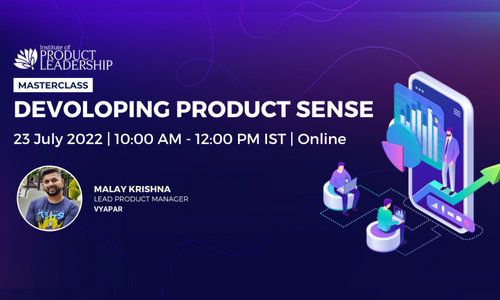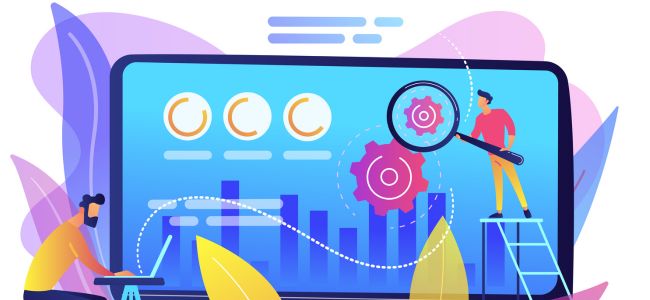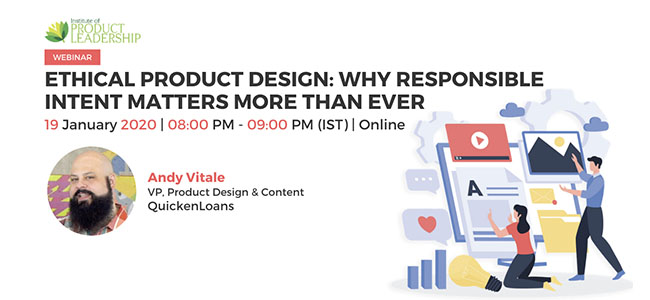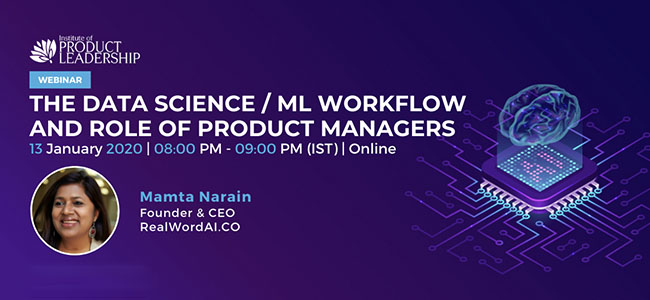Disrupting the Linear: A Fireside Chat with Punit Soni
About Punit Soni
Punit Soni is one of the much feted Product Leaders of our times. He’s blazed a leadership path among consumer internet product companies both in India and in the Silicon Valley, and has recently started up on his own in the Machine Learning space.
Punit’s stint as a Product Manager at Google saw him launch the Google+ mobile strategy, and lead Google+ games and mobile apps. He moved on to Motorola Mobility where he re-architected the Software Product Management team as VP, Products. He then moved to Flipkart at Bangalore as their Chief Product Officer where he doubled the user base with a new mobile strategy.
Punit has an MBA from Wharton and an MS in EE from the University of Wyoming. He’s also an alumnus of REC Kurukshetra where he did his BE in Electronics.
Punit was interviewed by Prof. Pinkesh Shah, IPL’s Senior Faculty, Read on for highlights from their chat:.
Punit’s stint as a Product Manager at Google saw him launch the Google+ mobile strategy, and lead Google+ games and mobile apps. He moved on to Motorola Mobility where he re-architected the Software Product Management team as VP, Products. He then moved to Flipkart at Bangalore as their Chief Product Officer where he doubled the user base with a new mobile strategy.
Punit has an MBA from Wharton and an MS in EE from the University of Wyoming. He’s also an alumnus of REC Kurukshetra where he did his BE in Electronics.
Punit was interviewed by Prof. Pinkesh Shah, IPL’s Senior Faculty, Read on for highlights from their chat:.
Q: After Google and Flipkart, you’re involved in something more audacious and disruptive. Can you let us in?
A: You’ll have to wait a little bit for more details. We’ve been talking to our users and ensuring we have product-market fit. It will be in the space of AI and machine learning. I’ve joked about this in my blogs: it’s fashionable to say we’re doing something in AI or machine learning similar to a few years ago when the word ‘mobile’ was hot. It’s cliched but we’re going to solve a real world problem with machine learning.
My partner in this venture is Anshu Sharma, VP of Product Strategy at Salesforce. He’s an enterprise-oriented, go-to-market focused person. I’m more user-oriented, consumer-driven so we make a good pair. In a couple of months I would love to tell you exactly what we’re building. In the meanwhile, we’re heads down.
Q: Yes, lots of amazing work going in AI. I recently reviewed on a panel a healthcare startup that will almost predict when you’ll fall sick and find a cure. A ‘Doctor-bot’ if you will.
A: These are hard problems to solve. True machine learning involves setting up data and feedback and infrastructure; this is something very hard to do. I was keen on starting something that is very heavy on core technology. That will ultimately be our value proposition. We’ve just started and have a long way to go. We’ll do a good job and hope for the best.
Q: Now you’re back in the Valley after your Flipkart stint in Bangalore. What are the stark differences between the two ecosystems from both an entrepreneurial perspective and an intrapreneurial one?
A: The entire market is very different in the way it’s evolving. One of the first things in India is the vitality and energy - it makes the Bay Area look very sleepy. Very few places have that visibly apparent energy. India has so many young people trying to figure out how build stuff. A few years ago, people would look for a good job. Now people graduate and want to start a company. It’s almost a chore to try to convince them to work for you. There is a fundamental change in attitude.
Second is the market opportunity in India that’s very, very big. The US outstrips every other market in size of the market, but the growth in the Indian market is unlike anything I’ve seen. You can’t look at China because that’s not a level playing field. In terms of scaling and learning how to match the sheer growth, there are skills you have to learn in India that are very different from the US.
The product ecosystem in India is a work in progress, a few years ago I would say there’s a lot more to be done. IPL has been helping foster that. Things are better now - there’s a lot more happening now. But it doesn’t compare to the talent you can get out here (in the Valley).
An ecosystem of product leadership is possible when you have mentors and leaders who have built product companies. There are not many companies that are great examples of companies that display sheer product excellence. There’s lot of progress but more work to be done.
Q: An experienced PM in the audience who wants to move from the valley to Bangalore wants to know about career opportunities there. Any advice on roles and companies?
A: There is a lot of opportunity in India. If you are junior or mid level PM, there are lots of roles. You will learn a whole different culture in Indian and flex muscles you haven’t before. All the top companies are really good places to go - Flipkart,Ola, Uber India and Amazon India are doing great things. At a higher level - a C-level or VP/SVP of Product, I don’t see much of a track record there where they can have true leadership. I would advise such a person to find a role that is a CEO role or to start a company of your own.
Q: Another audience member who is a PM at VMC is interested in executive or leadership role, such as CPO. How should he go about getting that role? Also, a lot of senior PMs in Bangalore often find themselves ‘stuck’ or hit a ‘glass ceiling’ and wonder where next? The highest level in India is usually Director. Roles such as Senior Director onwards are the US.
A: Whether CPO, VP of Products or SVP of Products these are all same roles with different titles. The key is how to become Head of Product. There are many ways -
Start behaving and doing the work of the next role where you want to be. Try to be executive in your decision making, interaction with your team and strategizing. People will see your potential. Start being the change you want to be.
Find somebody who can be an effective mentor to you - a person who recognizes your potential and stands with you during your growth. Many ‘stars’ don’t go far without that grooming and exposure to interesting problems that mentors bring. Most successful people are those who have had mentors.
There is a Head of Product role for almost everybody. It depends on the size of the company you can go to - mid-size, small company, startup. Or, start a company of your own.
That’s what I have done. I attribute any success I’ve had to my mentor at Google. We did some incredible products at scale.
Q: When you were the CPO at Flipkart, you were probably one of few CPOs in a real sense in an organization of that size. Do you think that such a title is a fad in India or is it a trend that will become the norm?
A: CPO (or VP of Products) is a conventional, typical role in the valley. What really matters when you take a Head of Product or Engineering role is who you report to. If you report to the CEO, you are in the leadership team responsible for driving the company forward. In India, you will increasingly see a lot more of that.For instance, if a company has a COO role, and the product person reports to that role, then product may not be the chief focus of the company.
Q: How does one break into PM without prior experience? Is a general management style MBA good enough to break in? What relevant skills are top B-schools like ISB teaching towards this?
A: When I’m hiring senior people I rarely look for an MBA. It can potentially help an entry-level person. It might be better to think of skills - first, a general breadth of understanding of different technological and product trends. E.g., I may ask them tell me what’s going on with video ads these days. Second, they should be able to put themselves in the shoes of the users - their demographics, design, the market. I also like people with an Engineering background. Product Managers have to deal with Engineering people every day. If you’re unable to understand the ramifications of the product decisions you take, you will not gain credibility with the Engineering folks. Then you will never be able to succeed. This is not necessarily a tech degree, it’s more tech know-how. Finally, Emotional Intelligence. A PM can be a leader or enabler or follower depending on the org. Do you have the ability to know your team’s needs and the gaps? Can you give credit to the team when you succeed, and take the blame when the team fails? If you’re an intuitive people person, that is a primary attribute that will help you succeed.
An MBA especially from a top university can open a lot of doors. But these attributes are essential to help you succeed.
Q: With access to all kinds of video content, a lot of people take online courses which makes them buzzword compliant. What is your take on this online method of learning versus a more experiential learning? Which one is better at which stage of the career?
A: There’s nothing wrong with online reading and learning and courses. But they will never substitute for experiential learning. I’ll make this point with a short story - I have a friend who is an Urban Designer who freelanced with startups contributing her design aesthetic for 6 months. She was hired by one of them, from where she moved to Paypal, Ebay, and now she’s a PM at Facebook.
Similarly, Bangalore has the largest number of startups in the world. Find someone who will give you the ability to do this - for free, in the weekends - you will learn how to become a PM better than an MBA.
A: You’ll have to wait a little bit for more details. We’ve been talking to our users and ensuring we have product-market fit. It will be in the space of AI and machine learning. I’ve joked about this in my blogs: it’s fashionable to say we’re doing something in AI or machine learning similar to a few years ago when the word ‘mobile’ was hot. It’s cliched but we’re going to solve a real world problem with machine learning.
My partner in this venture is Anshu Sharma, VP of Product Strategy at Salesforce. He’s an enterprise-oriented, go-to-market focused person. I’m more user-oriented, consumer-driven so we make a good pair. In a couple of months I would love to tell you exactly what we’re building. In the meanwhile, we’re heads down.
Q: Yes, lots of amazing work going in AI. I recently reviewed on a panel a healthcare startup that will almost predict when you’ll fall sick and find a cure. A ‘Doctor-bot’ if you will.
A: These are hard problems to solve. True machine learning involves setting up data and feedback and infrastructure; this is something very hard to do. I was keen on starting something that is very heavy on core technology. That will ultimately be our value proposition. We’ve just started and have a long way to go. We’ll do a good job and hope for the best.
Q: Now you’re back in the Valley after your Flipkart stint in Bangalore. What are the stark differences between the two ecosystems from both an entrepreneurial perspective and an intrapreneurial one?
A: The entire market is very different in the way it’s evolving. One of the first things in India is the vitality and energy - it makes the Bay Area look very sleepy. Very few places have that visibly apparent energy. India has so many young people trying to figure out how build stuff. A few years ago, people would look for a good job. Now people graduate and want to start a company. It’s almost a chore to try to convince them to work for you. There is a fundamental change in attitude.
Second is the market opportunity in India that’s very, very big. The US outstrips every other market in size of the market, but the growth in the Indian market is unlike anything I’ve seen. You can’t look at China because that’s not a level playing field. In terms of scaling and learning how to match the sheer growth, there are skills you have to learn in India that are very different from the US.
The product ecosystem in India is a work in progress, a few years ago I would say there’s a lot more to be done. IPL has been helping foster that. Things are better now - there’s a lot more happening now. But it doesn’t compare to the talent you can get out here (in the Valley).
An ecosystem of product leadership is possible when you have mentors and leaders who have built product companies. There are not many companies that are great examples of companies that display sheer product excellence. There’s lot of progress but more work to be done.
Q: An experienced PM in the audience who wants to move from the valley to Bangalore wants to know about career opportunities there. Any advice on roles and companies?
A: There is a lot of opportunity in India. If you are junior or mid level PM, there are lots of roles. You will learn a whole different culture in Indian and flex muscles you haven’t before. All the top companies are really good places to go - Flipkart,Ola, Uber India and Amazon India are doing great things. At a higher level - a C-level or VP/SVP of Product, I don’t see much of a track record there where they can have true leadership. I would advise such a person to find a role that is a CEO role or to start a company of your own.
Q: Another audience member who is a PM at VMC is interested in executive or leadership role, such as CPO. How should he go about getting that role? Also, a lot of senior PMs in Bangalore often find themselves ‘stuck’ or hit a ‘glass ceiling’ and wonder where next? The highest level in India is usually Director. Roles such as Senior Director onwards are the US.
A: Whether CPO, VP of Products or SVP of Products these are all same roles with different titles. The key is how to become Head of Product. There are many ways -
Start behaving and doing the work of the next role where you want to be. Try to be executive in your decision making, interaction with your team and strategizing. People will see your potential. Start being the change you want to be.
Find somebody who can be an effective mentor to you - a person who recognizes your potential and stands with you during your growth. Many ‘stars’ don’t go far without that grooming and exposure to interesting problems that mentors bring. Most successful people are those who have had mentors.
There is a Head of Product role for almost everybody. It depends on the size of the company you can go to - mid-size, small company, startup. Or, start a company of your own.
That’s what I have done. I attribute any success I’ve had to my mentor at Google. We did some incredible products at scale.
Q: When you were the CPO at Flipkart, you were probably one of few CPOs in a real sense in an organization of that size. Do you think that such a title is a fad in India or is it a trend that will become the norm?
A: CPO (or VP of Products) is a conventional, typical role in the valley. What really matters when you take a Head of Product or Engineering role is who you report to. If you report to the CEO, you are in the leadership team responsible for driving the company forward. In India, you will increasingly see a lot more of that.For instance, if a company has a COO role, and the product person reports to that role, then product may not be the chief focus of the company.
Q: How does one break into PM without prior experience? Is a general management style MBA good enough to break in? What relevant skills are top B-schools like ISB teaching towards this?
A: When I’m hiring senior people I rarely look for an MBA. It can potentially help an entry-level person. It might be better to think of skills - first, a general breadth of understanding of different technological and product trends. E.g., I may ask them tell me what’s going on with video ads these days. Second, they should be able to put themselves in the shoes of the users - their demographics, design, the market. I also like people with an Engineering background. Product Managers have to deal with Engineering people every day. If you’re unable to understand the ramifications of the product decisions you take, you will not gain credibility with the Engineering folks. Then you will never be able to succeed. This is not necessarily a tech degree, it’s more tech know-how. Finally, Emotional Intelligence. A PM can be a leader or enabler or follower depending on the org. Do you have the ability to know your team’s needs and the gaps? Can you give credit to the team when you succeed, and take the blame when the team fails? If you’re an intuitive people person, that is a primary attribute that will help you succeed.
An MBA especially from a top university can open a lot of doors. But these attributes are essential to help you succeed.
Q: With access to all kinds of video content, a lot of people take online courses which makes them buzzword compliant. What is your take on this online method of learning versus a more experiential learning? Which one is better at which stage of the career?
A: There’s nothing wrong with online reading and learning and courses. But they will never substitute for experiential learning. I’ll make this point with a short story - I have a friend who is an Urban Designer who freelanced with startups contributing her design aesthetic for 6 months. She was hired by one of them, from where she moved to Paypal, Ebay, and now she’s a PM at Facebook.
Similarly, Bangalore has the largest number of startups in the world. Find someone who will give you the ability to do this - for free, in the weekends - you will learn how to become a PM better than an MBA.
Q: I once hired a product manager who was a music composer. He was able to look at any situation and draw distinctly different inferences from others. It’s all about developing the skills and developing a bias for action.
A: It’s entrepreneurship too - we should look at our careers as startups and ask ourselves what kind of skills can we develop to make our careers succeed.
Q: Let’s talk about specific skills for PMs to get in or to move up. There are 3 buckets from a hiring manager’s perspective - leadership skills (storytelling, convincing people, working with engineers, leading through influence, resolving conflicts), brasstacks (pricing, roadmapping, agile), and finally domain of the product. What combination of these three do you look at when you hire?
A: The buckets are exactly what I look for. In addition, I want to see people who have a lot of respect for data and make decisions backed by data. I want to hire people who are user-centric. There are a lot of traditional skills in the second bucket that form the baseline such as analytics and user stories. The most important thing is the first category - to lead, be emotionally thoughtful, to inspire, articulate, communicate, be emotionally intelligent. If you have these, you have a shot at being hired. Domain knowledge matters in some areas - e.g., security. But for the most part, I like PMs who are generalists who can move from one domain to another by learning quickly. You should be able to take 2-3 months and be pretty good at what matters in most domains.
What skills are more important for mid-management? Are they any different from what you just described? What’s your advice for those who have gone “too long” in a certain direction and want to shift to products?
A: When you are in the middle of your career, I would be interested not in the specifics of the base level core PM skills, I want to see how much data matters to them. I would like to see the kind of things they prioritize in their PM flow. At that level of seniority you are a strategist - you can look where the company can go, but the vision and mission is where your time should be spent on. Finally, your ability to work with others - can you inspire? Can you communicate very well? You maybe the keeper of a lot of resources and be subject to a lot of push and pull. Can you take that?
If you are an Engineering Leader and want to do PM, the only way that will work if you have these skills.
Q: We see people running behind a title versus running behind a scope. Many engineering folks may be a Product Leader but not a PM in title.
A: Great engineering leaders are people who are product people anyways. I’ve worked with such people in most of my roles. A true engineering leader should develop themselves to run product as easily as they run engineering, and vice versa for product leaders.
Q: Apart from AI, for aspiring entrepreneurs what are the kind of problems or huge opportunities? Did you explore other areas?
A: Yes! Consumer companies are a bit of a crapshoot. The only valid roles in that space are those of PMs in large companies like Google, or those for younger people who are starting up. It is perilous to build startups in the consumer space. I would prefer a company that is consumer in experience but has a clear path to annual recurring revenue. Such a company is not beholden to outside capital.
Some great opportunities lie in solving problems in phishing, security, personal security, data security and identity - these are among the top 2 or 3 problems in the world. Second, sector-focused general collaboration tools will become big. I like AR more than VR. I also think new markets will pop up in enterprise use cases of VR such as military, medical, oil rigs, meditation and health care.
Ask yourself what framework do you want to follow and choose the one problem that you think you can solve within this framework. Everyone has their own path.
Q: How soon should one start meeting customers - at the deck stage? MVP stage? Alpha stage?
A: I am about 4.5-5 months into my startup journey and all I have done is talk to the customers. You will find the engineering, funding and everything else if you figure out what your customer wants. The problem should be defined/selected because you talked to customers. The initial pitch will be something that customer and you will have almost co-created. Your ability to startup is directly proportional to your ability to talk to customers. Everything else will come together.
A: It’s entrepreneurship too - we should look at our careers as startups and ask ourselves what kind of skills can we develop to make our careers succeed.
Q: Let’s talk about specific skills for PMs to get in or to move up. There are 3 buckets from a hiring manager’s perspective - leadership skills (storytelling, convincing people, working with engineers, leading through influence, resolving conflicts), brasstacks (pricing, roadmapping, agile), and finally domain of the product. What combination of these three do you look at when you hire?
A: The buckets are exactly what I look for. In addition, I want to see people who have a lot of respect for data and make decisions backed by data. I want to hire people who are user-centric. There are a lot of traditional skills in the second bucket that form the baseline such as analytics and user stories. The most important thing is the first category - to lead, be emotionally thoughtful, to inspire, articulate, communicate, be emotionally intelligent. If you have these, you have a shot at being hired. Domain knowledge matters in some areas - e.g., security. But for the most part, I like PMs who are generalists who can move from one domain to another by learning quickly. You should be able to take 2-3 months and be pretty good at what matters in most domains.
What skills are more important for mid-management? Are they any different from what you just described? What’s your advice for those who have gone “too long” in a certain direction and want to shift to products?
A: When you are in the middle of your career, I would be interested not in the specifics of the base level core PM skills, I want to see how much data matters to them. I would like to see the kind of things they prioritize in their PM flow. At that level of seniority you are a strategist - you can look where the company can go, but the vision and mission is where your time should be spent on. Finally, your ability to work with others - can you inspire? Can you communicate very well? You maybe the keeper of a lot of resources and be subject to a lot of push and pull. Can you take that?
If you are an Engineering Leader and want to do PM, the only way that will work if you have these skills.
Q: We see people running behind a title versus running behind a scope. Many engineering folks may be a Product Leader but not a PM in title.
A: Great engineering leaders are people who are product people anyways. I’ve worked with such people in most of my roles. A true engineering leader should develop themselves to run product as easily as they run engineering, and vice versa for product leaders.
Q: Apart from AI, for aspiring entrepreneurs what are the kind of problems or huge opportunities? Did you explore other areas?
A: Yes! Consumer companies are a bit of a crapshoot. The only valid roles in that space are those of PMs in large companies like Google, or those for younger people who are starting up. It is perilous to build startups in the consumer space. I would prefer a company that is consumer in experience but has a clear path to annual recurring revenue. Such a company is not beholden to outside capital.
Some great opportunities lie in solving problems in phishing, security, personal security, data security and identity - these are among the top 2 or 3 problems in the world. Second, sector-focused general collaboration tools will become big. I like AR more than VR. I also think new markets will pop up in enterprise use cases of VR such as military, medical, oil rigs, meditation and health care. Ask yourself what framework do you want to follow and choose the one problem that you think you can solve within this framework. Everyone has their own path.
Q: How soon should one start meeting customers - at the deck stage? MVP stage? Alpha stage?
A: I am about 4.5-5 months into my startup journey and all I have done is talk to the customers. You will find the engineering, funding and everything else if you figure out what your customer wants. The problem should be defined/selected because you talked to customers. The initial pitch will be something that customer and you will have almost co-created. Your ability to startup is directly proportional to your ability to talk to customers. Everything else will come together.
Facebook
Twitter
LinkedIn
Past Events
Tagged IPL TV-Speaker Series




